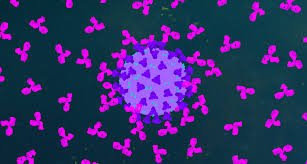ImmunityBio Study Shows Positive T Cell and Antibody Immune Responses to its COVID-19 Vaccine Candidate that Targets Both Spike and Nucleocapsid Virus Proteins

- Preclinical results show this next generation Adeno (hAd5) vaccine, which targets both spike (S) and nucleocapsid (N) SARS-CoV-2 proteins, generates CD4+ and CD8+ T-cell responses, both of which can form long-term immune memory.
- Inclusion of nucleocapsid in this vaccine construct potentially overcomes the risk of emerging mutations in spike, which might limit the efficacy of S-only vaccines.
- In the study, all of the mice (5 out of 5) generated robust CD4+ and CD8+ antigen-specific T cells to S and N proteins.
- Four out of five mice generated an S-specific antibody response, with evidence of Th1 dominance, and two of these mice demonstrated potent neutralizing antibodies.
- Previous clinical studies have shown that ImmunityBio’s second-generation hAd5 vector platform generates an immune response in patients with pre-existing immunity to adenoviruses, suggesting that prior adenovirus exposure is not a limitation for this platform during initial vaccination or a booster.
CULVER CITY, Calif.: ImmunityBio, Inc. a privately-held, a clinical-stage immunotherapy company, today announced positive preclinical results for its human Ad5 vaccine candidate that contains both the spike (S) and nucleocapsid (N) SARS-CoV-2 proteins (hAd5 S + N) for preventing COVID-19. The results were published in bioRxiv (“A Next Generation Bivalent Human Ad5 COVID-19 Vaccine Delivering Both Spike and Nucleocapsid Antigens Elicits Th1 Dominant CD4+, CD8+ T Cell and Neutralizing Antibody Responses”).
First-generation adenoviral-based vaccines are hampered by pre-existing adenovirus immunity, which reduces the immunogenicity of the vaccines. In addition, with vaccines that target S alone, there is a risk that they may be rendered ineffective due to the high likelihood of spike protein mutation.
“By additionally targeting the N antigen, which is highly conserved between SARS-CoV and SARS-CoV-2 and unlikely to mutate, our vaccine candidate is designed to generate long-term memory T cells activated by N protein, similar to those memory T cells that have been discovered in SARS-CoV patients 17 years after they recovered. These findings underscore the importance of developing a more broadly acting CD4+ T cell-centric vaccine that activates both cell-mediated and antibody immunity to protect against SARS-CoV-2,” said Patrick Soon-Shiong, M.D., Chairman and CEO of ImmunityBio.
The preclinical study showed that the bivalent hAd5 vaccine resulted in robust T cell and humoral immune responses against SARS-CoV-2 S and N antigens. Immunogenicity in mice was assessed after two doses given 21 days apart (Day 0 and Day 21). Immune responses measured on Day 28 showed that the vaccinations elicited robust T cell responses to SARS-CoV-2. Importantly, a statistically significant CD4+ T cell response to N protein was generated in all five mice. This is consistent with studies in patients who have recovered from SARS-CoV who show memory T cells to N protein. Four out of 5 mice generated an S-specific antibody response, with evidence of Th1 dominance. Two of these mice demonstrated potent neutralizing antibodies as they relate to the RBD ACE2 interface. Analysis of both T cell cytokine responses and antibody isotypes demonstrated that the overall immune response was highly skewed towards T helper (Th1) cell dominance important for mitigating the risk of antibody-dependent enhancement (ADE) of infection.
“To create durable immune protection from COVID-19, the optimal adenovirus vector delivering the vaccine candidate should be capable of inducing robust, durable T-cell, as well as humoral responses in everyone, including people who have preexisting immunity to adenovirus, a naturally-occurring virus to which up to 60% of the population has been exposed in some regions,” said Dr. Soon-Shiong. “This important preclinical study, which uses a second generation adenovirus vector, addresses the issue of preexisting ad immunity. We believe this is the first human adenovirus vaccine candidate to use S and N constructs to generate both T cell and humoral responses.”
ImmunityBio plans to administer the hAd5 vaccine both as a prime and a booster to sustain protection against SARS-CoV-2. The company has completed GMP dosage formulations that have already been manufactured in the United States. In ongoing studies, use of this vaccine construct in oral and sublingual formulations to induce mucosal, cell-mediated, and humoral immunity are being explored.
ImmunityBio has filed an Investigational New Drug (IND) application with the FDA to initiate Phase 1 trials of this next-generation hAd5 S+N vaccine to be administered subcutaneously in healthy volunteers. The company plans to submit the full data from this study for publication in a peer-reviewed journal in the coming weeks.
Agreement to Jointly Develop, Manufacture and Market COVID-19 Therapeutics and Vaccine
In May, NantKwest and ImmunityBio entered into a binding term sheet to pursue collaborative joint development, manufacturing, and marketing of certain COVID-19 therapeutics and vaccines. The parties intend to equally share all costs relating to developing, manufacturing and marketing the product candidates globally; the net profits from the collaboration products will be shared, with 60% in favor of the party contributing the product on which the sales are based. The companies are negotiating the terms of a definitive agreement and anticipate finalizing documentation before August 21, 2020 after which either party can terminate the binding term sheet upon five business days’ written notice if an agreement is not finalized.















































